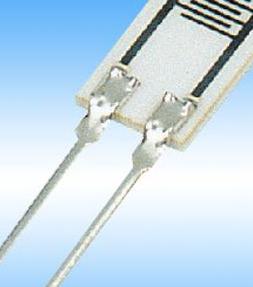Hardware smart meter anti-stealing electrical isolation sensor
Most residential and commercial buildings in the United States still rely on traditional electromechanical meters to track electricity consumption. These devices are known for their durability and low cost, but they lack the advanced features needed for modern power distribution systems that require accurate, repeatable measurements and communication capabilities—making them unsuitable for the emerging smart grid infrastructure. Smart grids depend on intelligent meters equipped with full communication functions to monitor energy usage in real time. This allows both households and businesses to make smarter decisions about when and how much energy they consume. However, the transition to a nationwide smart grid is not without challenges. While federal legislation like the Energy Act of 2007 and the American Recovery and Reinvestment Act of 2009 have supported smart grid development, implementation remains largely state-driven. California and Texas have emerged as leaders in smart meter adoption, setting the pace for other states to follow. Even if the national rollout of smart grids faces delays, many independent utility companies are already investing in smart meter technology. This growing demand has created a significant market opportunity. Over the next decade, global utility providers may need to replace up to 500 million meters, signaling a major shift in how energy is monitored and managed. A typical smart meter includes a microcontroller with built-in analog-to-digital (ADC) and digital-to-analog (DAC) converters, voltage and current sensing components, an AC/DC power supply, a backup battery, and either wired or wireless communication modules. These features allow the meter to collect and transmit detailed energy usage data to the utility company and provide users with real-time feedback. In addition to intelligence and connectivity, smart meters must also be secure against tampering. To prevent unauthorized access or manipulation, manufacturers incorporate anti-tamper mechanisms and encryption protocols. Several leading semiconductor companies offer specialized meter ICs, including Texas Instruments, ON Semiconductor, Maxim Integrated, Analog Devices, Teridian, and e2v. These chips serve as the brain of the smart meter, handling data acquisition, signal processing, and communication tasks efficiently and reliably. Bestware Automatic Faucet brings the fine design and high technology together in all areas of the product process beyond Pull Out Faucet , Commercial Faucet and Commercial Kitchen Faucet. With extensive range of components, we can offer a large selection of both standard Pre-rinse Faucet and custom Basin Tap units as well as flexible combination. Stainless steel is 100% recyclable and is comprised of over 60% recycled material, Bestware faucets are the perfect solution in the commercial and industry for better water quality and the circumvention of the development of deleterious substances and bacteria. No plating, no oxidizing, no rust, lead free. Automatic Faucet,Automatic Water Tap,Automatic Water Saver Tap,Automatic Taps Bestware Hardware Production Co., Ltd. , https://www.bestwaremfg.com
